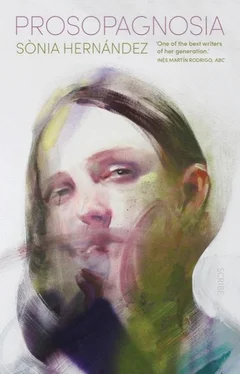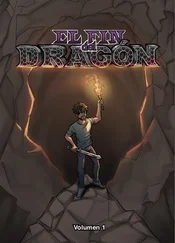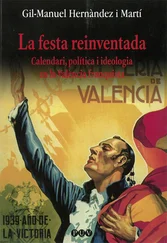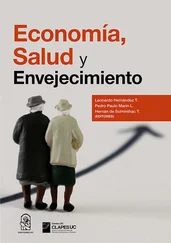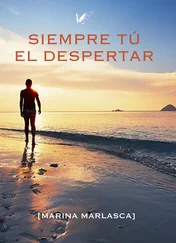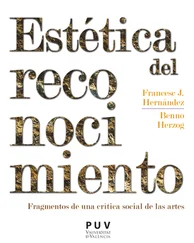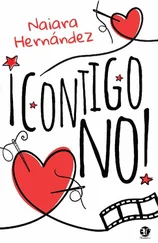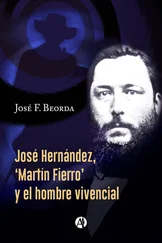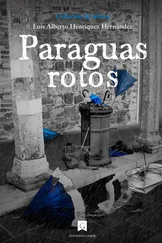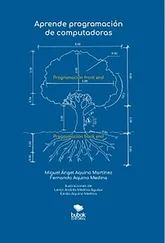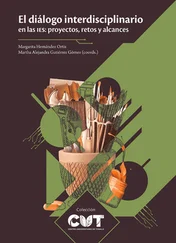I figured that the best way to re-establish contact was via the telephone. Isabel was surprised to receive my call. We both said how sorry we were that we hadn’t been able to settle on a date for that catch-up we were always promising each other. Right after that, she began listing the names of all the people who’d been fired from the newspaper in the past months.
‘Time’s running out for the rest of us too; everything is going to shit, and very soon,’ she said.
She asked about me — someone had told her that Pablo and I had separated. I found something surreal in that simple affirmation. It felt like a lie. Those words seemed as remote as the ones she used to describe the firing of all those people I knew only by name. I preferred to talk about the artist. I wanted to recoup the energy I had felt after the excitement of my visit to the studio. When I began to list the reasons I thought it would be interesting to publish an interview in the newspaper, it felt, after a while, like someone who wasn’t me was speaking in a way that I might have spoken, a long time ago. Journalism was no good for me, or maybe I was no good for journalism. Perhaps I was unlucky, and I’d entered the profession when the death-rattles the editor-in-chief had just described to me had already begun to be heard. But having already taken the step of getting back in touch, I kept on listing my reasons.
Isabel wasn’t sure that now was the right moment to dedicate so much space to the artist. Throughout our conversation, she demonstrated that she was quite familiar with his trajectory, and she was surprised that Vicente Rojo was in our city. She’d heard that he had only just left Mexico. She asked me if he was preparing a new show, because that would be the perfect reason to include him in the paper. If we didn’t have a convincing reason, something tied to the frenetic nature of the news cycle, it would be hard for her to secure space in the newspaper’s pages. I told her that the people at Berta’s school had said that he would be giving classes there. Isabel went quiet for a moment, but in the end, she encouraged me to interview him, to find out what he was doing here, and to get to the bottom of the business of the art classes at the school. Before hanging up, she said I should check my diary and come by the newsroom one day to see my old colleagues. I would never be able to go back there. That was a world I had left behind long ago, but I was determined to write a great interview with the artist, Vicente Rojo.
I tried to share with Berta the epiphany I’d had while visiting the artist’s studio, but she still didn’t want to hear about it.
‘And I’d appreciate it,’ she said, ‘if you wouldn’t leave the painting where I might see it. Every time I look at it, even when it’s by accident, it looks worse and worse to me.’ I persisted until she said something like how it came as no surprise that all this was happening to her, because it was just another stop on her journey along the highway of horror. Without waiting for me to respond, she added that, on the other hand, she would be very thankful if I let her have a pet.
‘So it feels like I have company,’ she said. Because I still hadn’t reacted to her words, she took the opportunity to reproach me: ‘But it has to be a really repulsive pet, really ugly and horrible, otherwise it won’t be a good match for me.’ When at last I spoke, I told her she couldn’t have a pet while she persisted with this attitude and with living so chaotically. She looked me straight in the eyes with an ironic smile that I had never seen before. I held her gaze in silence, until she was the one to look away, returning to the piece of paper she had been doodling on while I had been trying to hold a conversation with her.
I thought she’d lost interest in drawing some time ago, but I realised that she had returned to the habit of drawing tiny, irregular circles, each one squeezed next to the other. They looked like minuscule pebbles, forming a shapeless, pimply mass that seemed to expand across the page like a sponge, or milk spots on the skin.
I wasn’t ready to give in to her desire to change the topic of conversation. I told her that the newspaper had asked me to interview the artist, because he was very famous in Mexico. She kept on with the circles, tracing over them without looking at me, as if she hadn’t heard me at all. She never gave me the opportunity to tell her about the importance of Beauty in discovering an essential part of one’s existence. She had asked me for a pet, the ugliest I could find, and I begged her to tell me what kind of animal she wanted. I also asked her not to adopt an animal that was sick, wounded, or deformed. By the way she looked at me, I knew I had stumbled across her plans. Then she made me feel guilty.
‘Okay, nothing sick, nothing deformed, healthy animals only. Are fat animals healthy? What about skinny ones?’
The artist asked me to come to his studio for the interview. He said it was the place where he felt safest, that he almost never left his house and that when he did, the studio was where he went. I was amazed once again by how clean and orderly the place was. We sat at the same table as the first time I’d visited, in the corner, on the old wicker chairs that had been restored. On the wall opposite the table, a wooden structure, similar to a shelf, housed canvasses that had been arranged neatly in a row, as if they were books. I distracted myself by imagining the paintings on the canvases.
He had laid out a teapot on the table, along with two cups and a packet of biscuits. He continued to demonstrate the same impeccable manners as last time, but it was clear that he felt uncomfortable. He’d let me know over the phone that he was happy to chat with me for a while, but doubted that anything he had to say would be of any use for the interview. As soon as he had welcomed me into the studio for the second time, he repeated his objections. When I left the tape recorder on the table, I noticed his displeasure. To reassure him, I reminded him that the editor of the culture section had seemed very interested in the possibility of publishing an interview with him. It was meant as a compliment, but it just made him even more uncomfortable.
‘You never told me you were a journalist.’
‘Actually, I haven’t written for the newspaper in a long time, but after our conversation the other day I got interested in interviewing you and publishing it.’
‘I don’t know who would be interested in anything I have to say. I’m just a very old man who no longer understands the world. I don’t even know what the world is anymore. Even if I did know, I wouldn’t know how to express it. Every time I’ve been interviewed, I’ve always regretted it afterwards. I’m frustrated by my inability to explain what I think.’
‘You have lots of interesting things to say. And it’s a real pleasure to listen while you speak. I’ve been looking online and I have to admit I’ve been surprised by how much information there is about you. I’m ashamed of my ignorance.’
‘What do you mean?’
‘I mean I’m ashamed to say that until now I was completely unaware of your work. You’re very important. You work is very well-known.’
He looked down and raised his hand slightly, as if he wished to silence me, but didn’t quite dare. He smiled.
‘There are still a few people interested in my work, yes. And believe me, I’ve worked a lot, always. Working for culture is working for life.’
‘I’ve seen a lot of your work online: graphic design, sculpture… And of course, the legendary cover of One Hundred Years of Solitude. ’
‘Where did you say you saw all of this? What catalogue was it?’
‘I saw it online. On the internet.’
Читать дальше
